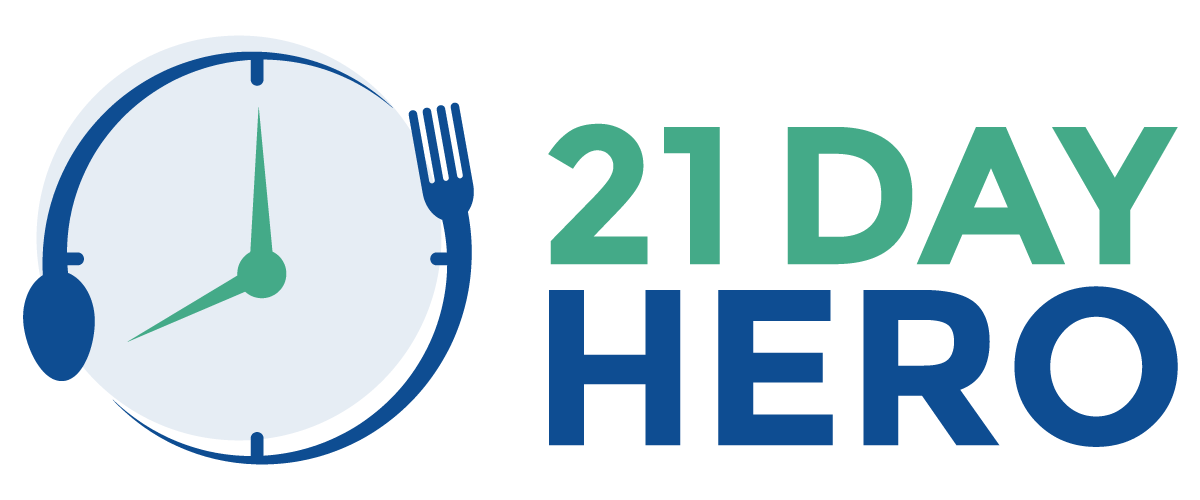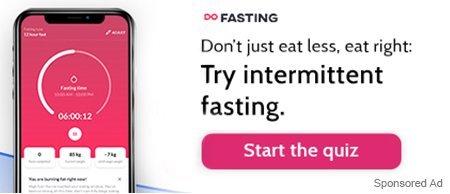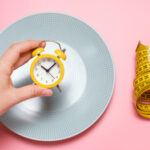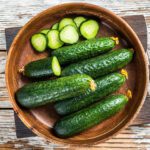Symptoms of Diarrhea | Why Intermittent Fasting Causes Diarrhea | Tips to Avoid Diarrhea | Cures for Diarrhea | When to see a Doctor
Do you have Diarrhea after fasting or while fasting? We are here to help you understand why! Fasting is known to have many health benefits, such as increased focus and faster body fat burning. But, sometimes, you may experience some side effects, like diarrhea after fasting. Such problems are not only discouraging but can become a more serious health concern. Diarrhea when fasting is something that can be quite common.
What is Diarrhea? And what is a Fasting Diarrhea Cure?
Diarrhea is nothing but loose, watery stools and frequent bowel movements. Most of the time, diarrhea after fasting is short-lived. But, if the symptoms last for a longer time, it can be worrying and might need medical help. Generally, stomach upset is seen soon after breaking the fast.
Though it is normal to experience diarrhea while following a fasting or intermittent fasting routine, there are ways you can prevent its occurrence or reduce its severity. Let us discuss in detail why we experience diarrhea when fasting, common causes, and some quick remedies.

Symptoms of Diarrhea while Fasting
- Loose, watery stools.
- Frequent bowel movements.
- Abdominal pain.
- Bloating
- Nausea
- Fever
Diarrhea is an unpleasant condition, which can significantly reduce your hydration status. You may experience mild to severe symptoms depending on your health condition.
Consult your doctor immediately if you have severe symptoms like blood in stools, fever, and severe abdominal pain.

Why Does Intermittent Fasting Causes Diarrhea
One of the most common reasons for a person to experience diarrhea after fasting is choosing the wrong foods to break the fast. When you are on a fasting routine, your body becomes very sensitive to food. Breaking your fast with huge meals or greasy food, which are hard to digest, can cause diarrhea. However, it is essential to know that intermittent fasting in itself does not cause diarrhea. It usually happens due to the wrong way of breaking your fast.
Choosing high-fat foods to break your fast can also lead to diarrhea, even if you choose healthy fats. It happens because your digestive system slows down during your fasting window. When you break your fast with high-fat foods, it does not get digested well. It leads to watery stools. Similarly, usage of supplements just after fasting can also cause diarrhea.

Generally, diarrhea when fasting is not prolonged and is not life-threatening. However, If you experience symptoms like excessive water loss causing severe dehydration, blood, and mucus in stools, then you should consult your doctor.
Another reason for diarrhea can be food poisoning. Diarrhea is one of the most common symptoms of food poisoning. Additionally, lactose intolerance or allergy to some food you have eaten in your first meal after fasting can also lead to diarrhea. If you are on some kind of medication, this can also be one of the causes of diarrhea.
You may also experience diarrhea due to excess intake of caffeine, electrolytes, and zero-calorie sweeteners during your fasting window.
To know how to break your fast the right way, read – How To Break A Fast: The Best Food To Eat After Fasting.
Tips to Avoid Diarrhea During Intermittent Fasting
As mentioned earlier, the main reason for diarrhea after fasting is making wrong food choices. So, whenever you break a fast, make sure to start with light meals that are not hard on your stomach. You can have bone broth, steamed veggies, fruits, yogurt, or eggs while breaking your fast. Don’t binge on food during your eating window. You can have small portions of food at frequent intervals allowing your body to adapt to your eating window.
Also, avoiding coffee first thing after breaking a fast can help prevent diarrhea. Make sure the meal you consume is cooked in a hygienic environment to prevent food poisoning.

7 Fasting Diarrhea Cures
Experiencing diarrhea just after breaking the fast can lead to dehydration, weakness, dizziness, and many other symptoms. In such times, you should stop fasting and focus more on resting and regaining your energy with balanced food. Here are some essential home remedies that you can use to cure diarrhea while fasting.
1. Increase Intake of Fluids
Drinking lots of water can rehydrate your body. You can also include diluted juices, soups, electrolyte replacement drinks, and herbal teas. Oral rehydration solutions (ORS) are the best for maintaining the electrolyte balance in your body. You can make the ORS at home or buy it at a pharmacy. However, make sure you avoid drinking caffeinated drinks and carbonated beverages if you are experiencing diarrhea. Excess water may also cause issues, so stay hydrated at a safe and healthy level, be sure you are getting enough water within your body demands.
We also wrote a great list on what you can drink, see it here – What can I drink while fasting?
2. Eat a Low-Fiber Diet
Another good fasting diarrhea cure, is you can follow the BRAT diet, which includes eating Banana, Rice, Applesauce, and Toast to relieve the symptoms of diarrhea. The BRAT diet is recommended for nausea and diarrhea. It consists of bland foods low in fiber and high in starch. White rice is another good option to help make your stool more solid.
You can also have foods that are rich in pectin, potassium, and proteins that are believed to help during diarrhea. Some examples include bananas, potatoes, oatmeal, soft-cooked vegetables, boiled chicken, soups, vegetable broths, etc.
3. Improve Your Gut Health
To minimize the chances or bowel issues you should improve your overall gut health. One of the keys is a healthy diet that includes fiber-rich vegetables and probiotics. However you can also try a colon cleanse with ColonBroom to fully detox your body, improve gut microbiota and even lose weight on the way. I would recommend Colon Broom that you can also use during your fasting window. You can also take certain detox teas and supplements to help your bowels cleanse.
4. Avoid Breaking Your Fast With High-Fat, Greasy, and Spicy Food
Many people break a fast with a greasy fatty meal with burgers, fries, and other fast food greasy type options. This is a mistake, as food is your FUEL for your body and greatly contributes to your overal gut well-being. Choose foods like bone broth, steamed veggies, or fruits to break your fast instead of high-fat foods. If you are lactose intolerant, then giving up on dairy and dairy products can help. Also avoid Gluten or any other allergens that you may have. I recommend getting a food sensitivity and allergy test to help determine what your diet restrictions are.
5. Probiotics can Help in Faster Recovery

Probiotics are microorganisms that help in digesting foods and also fighting infections. This is a great fasting diarrhea cure. Some readily available foods rich in probiotics are curd, yogurt, and other fermented foods. Diarrhea leads to the loss of healthy gut bacteria, and replenishing them is essential for good digestive tract health. Take a good probiotic supplement with minimal to no additives. You also want to look for more shelf stable varieties that don’t need to be refrigerated if possible.
Probiotic foods such as fermented drinks, fermented veggies, yogurt, and probiotic supplements are great choices.
6. Avoid Strenuous Exercises
It is ok to perform your daily activities while suffering from diarrhea. However, do not overexert your body with strenuous exercise since dehydration can worsen. Giving your body enough rest can help treat diarrhea faster.
7. Eat Small and Frequent Meals
Introducing too much food into your gastrointestinal tract can worsen diarrhea. But, you also need more energy to get you through the day. So, it is beneficial if you eat five to six small meals rather than consuming any large meals in a day. This way, your intestine will get the time to digest the food and reduce symptoms of diarrhea. And try different intermittent fasting intervals, such as 16/8 or One Meal a day and see how your body reacts to those. Lack of fiber may also be causing some mild diarrhea symptoms.
When to See A Doctor?
If you have diarrhea after fasting, what should you do? Normally diarrhea during fasting does not last for too long and can be cured with the help of some home remedies and diet control.
However, there are times when you may need to see the doctor. If your diarrhea lasts more than two days without any improvements, and you experience severe symptoms such as abdominal pain, high fever, bloody or black stools, and extreme weakness, you should consult your physician. It is not advisable to take over-the-counter medicines without a doctor’s prescription.
You may also have signs of Irritable Bowel Syndrome which can be causing your discomfort, this could be related to another underlying health condition that may be causing chronic diarrhea. Celiac disease or gluten allergens may also be causing your upset stomach and altering your GI tract.
Ulcerative colitis may also cause these symptoms as well, Crohn’s disease or inflammatory bowel disease. If you also start experiencing excessive weight loss, see your doctor as well. This may be impacting your immune system thus causing you to get sick more often.
Conclusion

I have been intermittent fasting for years, and I personally have not experienced any Diarrhea. I was doing a meat based diet for a period of time, and that was causing some watery stools, but that was due to the fat content of the meat. Generally fasting will not cause diarrhea if you eat whole foods, drink plenty of water, and have enough fiber in your diet.
Diarrhea after fasting is pretty common and can be caused due to a lot of varied factors. Although fasting does not lead to diarrhea, consuming wrong foods and binge eating can be the reason you can get runny stools and frequent bowel movements.
Take the above-mentioned preventive measures to avoid getting diarrhea during intermittent fasting. However, if you get diarrhea, stop fasting, drink ample fluids, eat small frequent meals, and give your body enough rest to relieve the symptoms. You will get through the Intermittent fasting diarrhea with a little patience and persistence.
Its a good idea to always be sure you are drinking enough water. If you have bloody stools or loose stools, its important you see a doctor to be safe.
Need an APP on your Mobile to help with Fasting? See our Top 6 FREE and Premium Fasting Apps HERE.
Related Articles You May Like:
See All of the types of fasting and which works for you!











